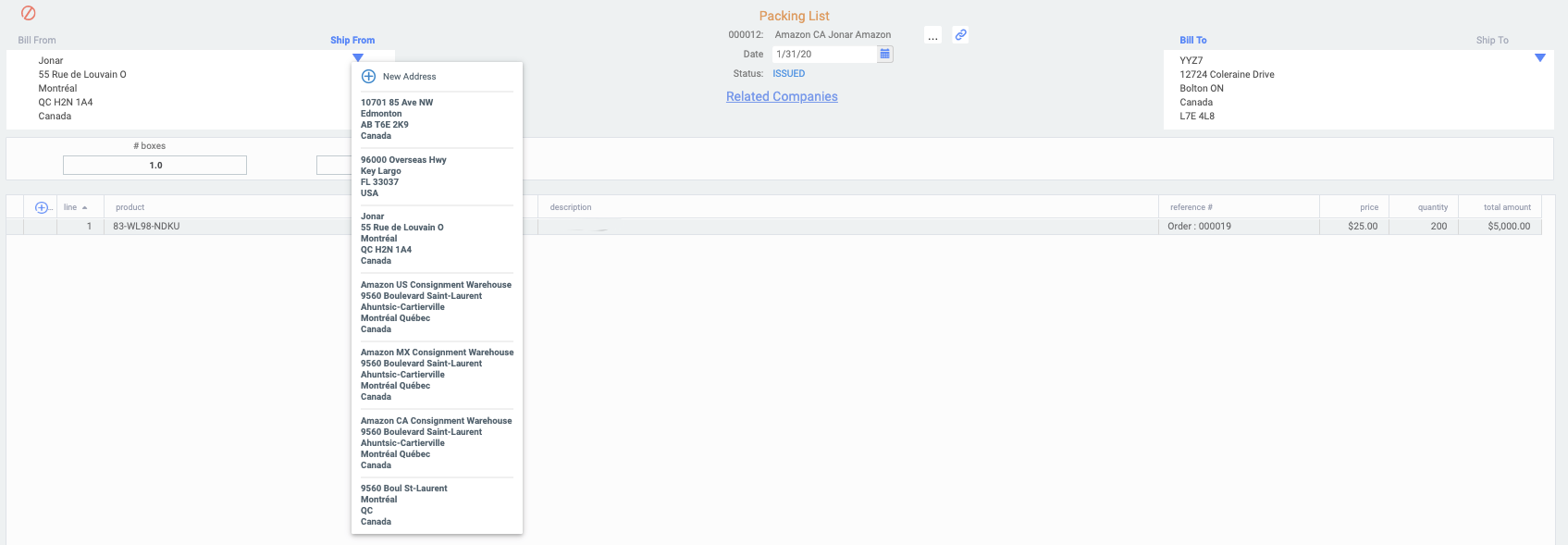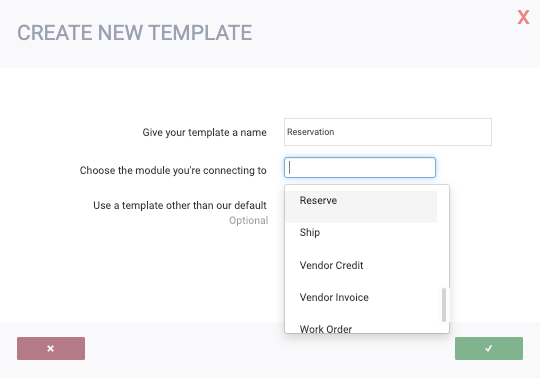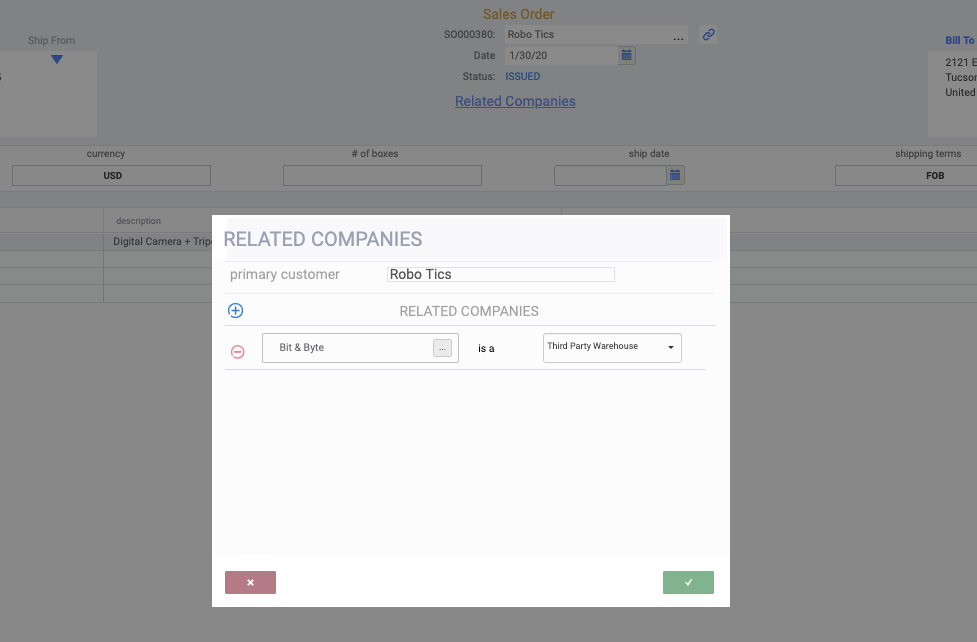What's new with Paragon - February 3, 2020
New features and bug fixes every two weeks. Come back here to check out what's new.
A guided Amazon stock fulfillment experience
After submitting a shipment plan, Amazon lets you know what FBA warehouses they want you to ship to. Based on where these warehouses are located, it might be more cost-effective for you to ship out of a different warehouse than the one that was originally specified on your shipment plan. To do this, change your ship-from address on the packing lists created in Paragon for your FBA shipments. Then, send your carton information to Amazon in order to receive shipping charges and a label in return. After sending your carton information, the changes in your ship-from address will be reflected on the shipment plan in Seller Central.

Creating shipment plans and shipping to Amazon requires specific fields of information at many different stages in the process - and sometimes, it's hard to remember what to do next and what to fill out. To help with this, you're shown only the options that are logical for the current stage of the workflow or the next step of your process. For example, the button to get your labels from Amazon is not even displayed until your carton information is sent. Further, any fields that are required by Amazon are marked as mandatory inside Paragon - this means that we'll stop you from moving forward until the correct information is filled out, avoiding any rejections from Amazon.

Clarity for order and return reconciliation
The settlement report is one of Amazon's most complicated reports, but we have good news! If you use Paragon, you never need to read another one again. By simply importing the settlement report into Paragon, the abundance of charges that Amazon deducts before your deposit is made are clearly recorded in Paragon. Since this is such a crucial process, we've made a few improvements:
- To know exactly what period you're importing, we've changed how we label the settlement report in Paragon. The name now includes the settlement date range and the settlement ID.
- Each marketplace has a different settlement report and now they can all be found within their corresponding eCommerce marketplace company in Paragon.
- Just in case you're curious about why a charge was added to Paragon, we have attached the settlement reports for each marketplace to the eCommerce company in Paragon.
- If you happen to import the same settlement report more than once, Paragon will not create duplicate transactions if they've already been imported.
Changes to the reservation module
Reservations are traditionally created to set aside inventory for a specific customer, project or season. But, in Paragon, our modules can be repurposed and used for any type of workflow. So, just in case you use reservations for something other than stock, we've added the sales price field back to the reservation module.

Another feature we've added is the ability to create custom PDF templates for reservations. Now you'll find reservations as an option in the report templates section in settings.

Related companies are inherited throughout your entire transaction chain
A related company on a transaction is a customer, vendor or partner that is involved in the transaction but is not the primary account. A broker, 3PL or a drop-shipper are all examples of related companies.

Another great feature in Paragon is the ability to create transactions from other transactions, with all pieces of relevant information copied onto the subsequent transaction automatically. With this update, we've added related companies to the list of fields that copy over onto the next transaction.
Create new transactions using the universal translator
The universal translator allows you to create and edit many transactions at once using a spreadsheet. We have a new and improved way of creating new transactions with the UT. Mark your new transaction lines with a * to designate that they are new and Paragon will automatically assign transaction numbers to any new records that are loaded. Now, why did we do this? With this new implementation of the universal translator, any number of users can be uploading new transactions in the UT at the same time - without overriding each other's work.
Narrow down your search terms using quotations
It is likely that inside your product catalog, your products contain many of the same fields of information. You can now start using double quotation marks around your search terms to find the exact product you're looking for!
More added to the rules engine
The rules engine is a powerful tool - and one day, you'll be able to write rules that affect any area of Paragon. With that goal in mind, we've rolled out a new update - the ability to write rules that affect your custom BOM. Quick reminder: your custom BOM is the BOM that is recorded on the transaction. Contact support for more information about rules.
Navigation bar UI enhancement
The navigation bar is found on the right-hand side in Paragon. In the
navigation bar, you can access the
more menu, which shows you all of Paragon's modules. To enhance consistency between the
more menu and
navigation bar, we've applied the same styling to both. Hover over the modules in both menus to experience the animation!
Bugs
- Improved performance when adding items to a transaction.
- Correction made to customer default shipping address functionality.
- Pull Amazon product attributes with a length of up to 300 characters. Any longer and we write to the log.
- Changing a transaction or reference correctly updates the date modified.
![paragon logo-1.png]](https://support.paragon-erp.com/hs-fs/hubfs/paragon%20logo-1.png?height=50&name=paragon%20logo-1.png)